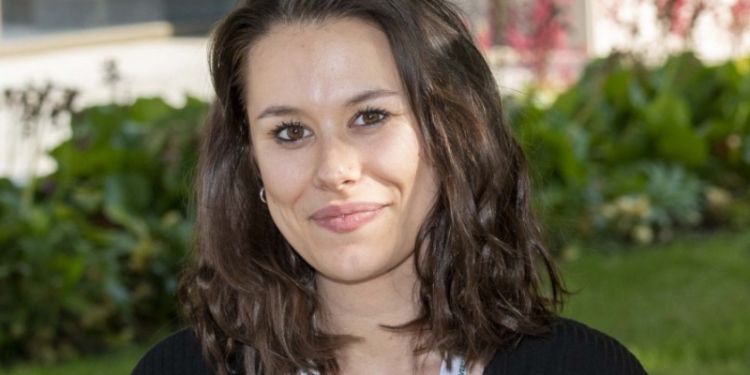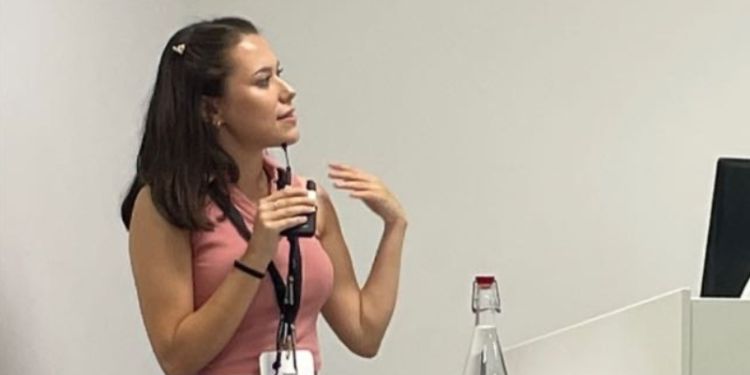University of Leeds alumna’s report highlights need for enhanced accessibility in student accommodation

This report is derived from a research project conducted in 2024 in collaboration with Leeds Institute for Teaching Excellence (LITE), and Educational Engagement and Residential Services teams.
School of Law alumna Oriana Campbell-Palmer (International Human Rights Law LLM ‘24) has written a new report: ‘Living in Student Accommodation: Identifying and improving best practice to support students with accessibility requirements at the University of Leeds’.
Oriana’s project was done as part of the Student Research Experience Placements scheme which offers University of Leeds students the opportunity to work as professional colleagues in partnership with staff, through carrying out independent research.
Oriana’s report offers valuable insights into the often-overlooked issue of accessibility in university accommodation. The report provides a thorough analysis of the existing practices and identifies key areas for improvement.
The research uses a multi-methodology approach that combines a literature review, website analysis, and semi-structured interviews. This approach allows the report to provide a broad, well-rounded perspective on the accessibility challenges faced by students with additional needs. The findings of the study are not just academic; they present actionable insights aimed at improving student accommodation for those with accessibility requirements.
An international perspective: key findings from the literature review
The literature review conducted as part of the research identifies several critical and common barriers that can be found internationally, hindering the provision of effective support for students with accessibility requirements in student accommodation.
Key issues highlighted include negative attitudes from both staff and students toward individuals with accessibility requirements or additional needs, which can create an unwelcoming environment, and a significant gap in research and practice concerning international students and transgender students, both of whom are frequently excluded from accessibility considerations in the context of student accommodation.
The literature review highlights the systemic nature of these (and other) common challenges found, present across many institutions worldwide.
As especially important in current global and domestic contexts, my research showed that a current gap exists regarding inclusion and support for transgender and international students within ideas of best practice relating to additional needs or accessibility in university accommodations. What also stuck out to me was the disproportionate financial impact that having additional needs - either via disability or for other reasons - can have on students when applying to and living in student accommodation. Ultimately, establishing best practice in this context should be an ongoing, active process that is university specific, and therefore considers all identities, and related potential barriers, of the relevant student population.
Findings specific to the University of Leeds
While the report identifies several areas of concern, it also highlights the strengths of current practices at the University of Leeds. Notably, the research reveals that the institution has made commendable strides in creating an inclusive and supportive environment for students with additional needs.
I was moved to see the high level of effort relevant accommodation teams and services have made, and continue to make, in addressing these sorts of challenges and providing tailored support to students. Whilst I feel that the University of Leeds could publicise these efforts more to make it clearer to prospective students that a range of related support exists, massive efforts have been made by both the central and residence specific accommodation offices, in addition to associated services like ResLife, to try to make student accommodation a home for all in a way that empowers and supports all individuals.

Plans for the future
Ideally, I would like to work in the areas of forced migration and disability, and eventually do a socio-legal PhD. Right now, my main aim is to get more experience in human rights organisations and I’ve been on the hunt for internships! Human rights is a competitive area, but I’m grateful to the School of Law for their support and for giving me such a good foundation.
During her time at the School of Law, Oriana was awarded the Caroline Gooding Academic Prize for best performance across the School of Law's Disability Law modules at postgraduate level, and was also the recipient of the Liberty Scholarship.
Find out more about studying for a Masters degree in International Human Rights Law at the School of Law here.




